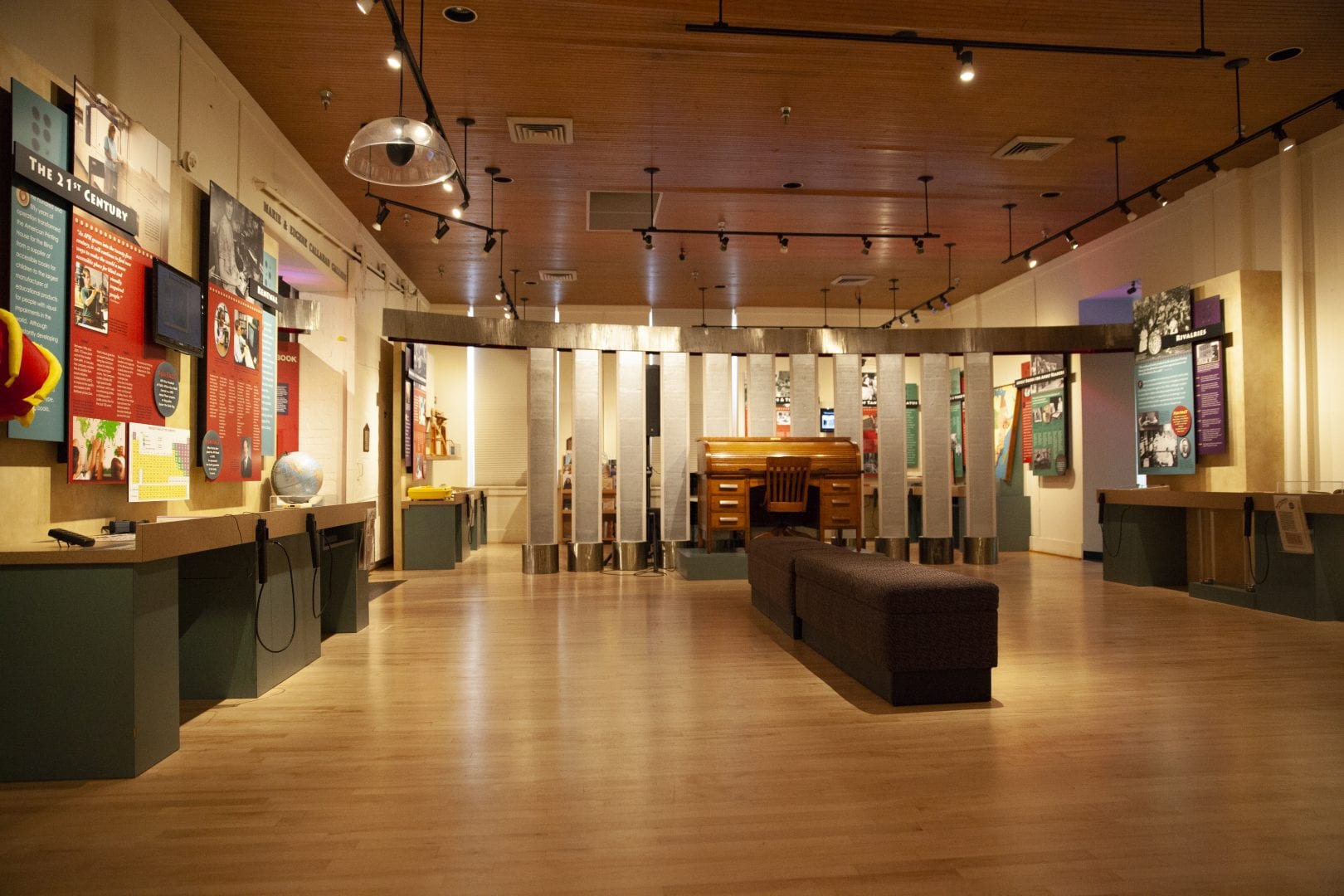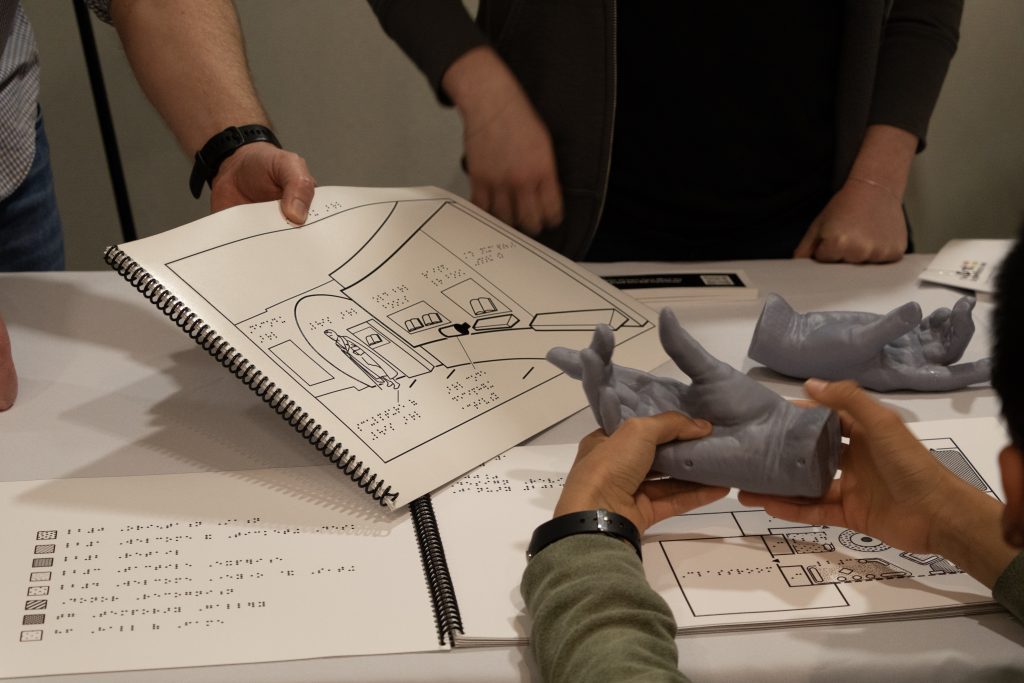The Customer Service team will be unavailable on December 24 and 25. They will return to their normal hours on Thursday, December 26.
CloseWe Don’t Need Another Hero

For the past three years I have been thinking a lot about heroes and heroism. Museums, as institutions that preserve and commemorate and memorialize, have a lot to do with both defining and perpetuating society’s understanding of heroic deeds worth holding up to kids as model behavior. I have been thinking about heroes because for the past three years the Printing House has been thinking about building a new museum, or rather crafting a new museum experience, one that uses the museum as the portal through which all visitors enter the company. And a museum that features the story of Helen Keller and her teacher Anne Sullivan Macy, because we acquired the rights to exhibit the AFB Helen Keller Archive from the American Foundation for the Blind in 2020.
Museum people love real things, authentic things that were there, you know, there when history was being made. And the AFB Helen Keller Archive is full of those things, her speeches, her letters, her personal things, the photographs and newspaper clippings and, well, all of it. And museum people love good stories, stories of real people that help us tell even bigger stories about stuff that affected everyone. Helen and Annie’s lives are full of those moments and those pictures and those events. And they were such amazing women who did such amazing things. Anne Sullivan showed up at the Perkins School for the Blind unable to read and only a few years later was her class valedictorian. Keller wrote some of the most intimate and potent prose and spoke truth to power her entire life.
But famous people have their own, mmm, how to put it, perils. The way we tell stories, and the people we tell stories about changes over time. Helen Keller has her own historical feet of clay. She is not universally viewed as a hero. She was a protégé of Alexander Graham Bell, and a student of the oralist tradition of deaf education. Proponents of American Sign Language saw Bell and oralists as “enemies of the true welfare of the deaf.” Bell and Keller also had uncomfortable connections to the eugenics movement that sought to limit the reproductive rights of Americans with disabilities. As a fundraiser for the American Foundation for the Blind, Keller had to sell blindness as a cause, and she was not above using pity for people with disabilities to motivate donations. She spoke in the language of disability of her day, but when we evaluate heroes, we often see them in the light of our modern sensibilities, and that light is often quite harsh. And let’s not go into her socialist politics right now, OK?
There is another thing bothering me about heroes and heroism that comes directly from the way disabled people are often perceived by society. People with disabilities get very tired being celebrated for doing ordinary things. You are not a hero for holding down a job, or boarding a bus, or reading a book, or making a can of soup. This arises from two sources: ignorance about life with a disability like blindness, and fear of how we ourselves might deal with disability. Our museum must celebrate the accomplishments of people who are blind and deaf-blind, their parents, and their teachers while also educating the broader community about the techniques and tools they use to lead ordinary lives.
We all need role models. They inspire us, they motivate us, they encourage us. I need to know that there are people stronger than myself, more clever than myself, more courageous, and more capable, and that I can draw on their stories when I need guidance and motivation. I need Helen Keller and Anne Sullivan Macy and countless others from the blindness field. But as we develop the new Museum of the American Printing House for the Blind, we need to remember that people are still people, with all their wonderful contradictions, and not be afraid to tell the good with the bad. We should celebrate people for their truly worthy accomplishments and not by the low expectations held by so many for people with disabilities. Helen Keller was one of the most accomplished people of the 20th century, without qualifiers of sex, race, or ability. What do you think? Do we need heroes or have we outgrown them? Who are your heroes and why? We’d love to hear from you.
Share this article.
Related articles

Blindness History Basics: Helen Keller Archival Collection
One of the most fascinating treasures at The Dot Experience is the American Foundation for the Blind (AFB) Helen Keller...

Connect the Dots: Celebrating Helen Keller
We celebrated a very special woman at the Saint Matthews Eline Library on June 15. Born on June 27, 1880,...

Defining The Dot Experience: Everything You Need to Know
What is The Dot Experience? The Dot Experience is APH’s re-imagined museum set to open in 2026. Designed with an...
